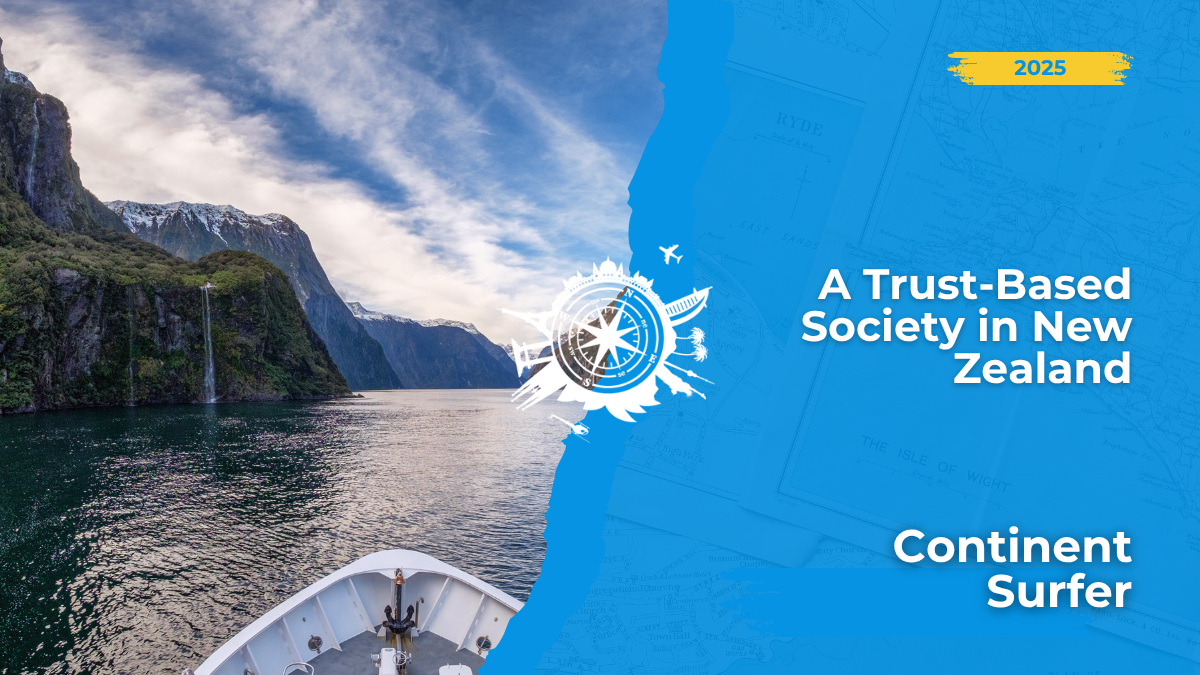A Trust-Based Society in New Zealand
A foreign land. An alien environment, unfamiliar customs. Culture shock. When the culture shock of a social system is healing. New Zealand, a trust-based society.
written by: Mea Barath- Continent Surfer
Culture shock affects everyone who moves abroad, or simply travels and gains insight into the daily lives and customs of a previously unknown country. The disorientation of novelty, the resulting stress or discombobulation, is culture shock itself. This can be surprise, wonder, or even horror. It definitely moves you out of your comfort zone. Culture shock creates a situation of forced adaptation. The previously unknown, new experiences require us to reorder ourselves on the level of our thoughts and emotions. For the change in customs, values, and norms we considered natural feels as if the ground beneath our feet has been pulled out. The world expands, which can shape our perception of life in both positive and negative ways.
Culture shock can encompass different phases. Initial excitement is followed by a feeling of confusion; we need to understand how things work here abroad that we previously thought we knew. Uncertainty can fill us with frustration. We are moving in an unfamiliar environment, and we don’t even know the rules. Finally, the digestion of culture shock brings understanding, and with it, integration.
Have you heard of reverse culture shock? This occurs when you arrive in Hungary after significant foreign experiences or a longer period of living abroad. You visit home or move back, and what you previously felt was familiar now seems alien. The old, accustomed things suddenly become strange and foreign.
But we can also understand the positive orientation of shock, when the shock effect ultimately leads to a kind of relief.
New Zealand, or Aotearoa, the Land of the Long White Cloud, is for me a long-lasting, gentle culture shock. It’s not the kind of culture shock that frightens you – rather, it’s the kind that makes you slowly exhale. Because for a Hungarian person who grew up in a “culture of shame” – where often the greatest praise was if you “didn’t cause trouble” – New Zealand is a gentle, yet powerful contradiction. The most profound realisation is how much the society is trust-based. I strongly resonate with expectations, I want to perform well. But no matter how hard I look, I don’t encounter expectations that would lead to judgment.
A Society Without Judgment
This doesn’t mean that you don’t have to perform at a workplace, or that it’s not difficult to get into a position. Because it is. I went through several rounds of interviews when applying for my current job, and it was decided after an hour-long in-depth interview that I would be chosen. Throughout the process, I was surrounded by a safe, supportive atmosphere. The situation was clear: the goal was to determine if the workplace needed me, and if I needed this work environment. My previous employer was also asked for a three-page character reference containing professional questions. This method also appears in other areas here in New Zealand. When renting a flat, you need to provide references who will be contacted for their opinion of you. Your previous rental manager may also be questioned. For a doctor’s appointment, you are registered by stating your name; no documents are required.
Culture shock at the museum. During a city walk, we discovered a small, privately owned gallery, but only upon entering did we realise there was an admission fee. We knew that unfortunately, paid entertainment didn’t fit into our budget right now, so we thanked them and were about to leave. I felt a slight sense of shame immediately kick in. The lady, who might have been the owner, kindly asked if we had seen a certain exhibition and recommended another museum, both of which were free. She didn’t raise an eyebrow that we were leaving her gallery without visiting, but reacted with simple acceptance, even helpfulness, to our current need, and naturally recommended free museums to us. They don’t know the culture of shame; the historical weight of mistrust and fear doesn’t weigh down daily life.

Photo: Mea Barath
The Community That Sustains You
Philip G. Zimbardo’s thoughts revolve in my mind; he believes that people are not fundamentally good or bad. They are mostly shaped by circumstances. He believed that people are kind if kindness and attention are the norm. To the popular saying, “One bad apple spoils the bunch,” he replied: “It’s not the Bad Apple, it’s the Rotten Barrel” – meaning the problem is not the bad apple, but the rotten barrel. Zimbardo taught that most often, individuals are not the source of the problem, but the system, the environment, the culture, the norm that surrounds them. If the barrel is rotten, even the best apples can rot. “Let’s build good barrels!” he said. I feel that New Zealand is a good country, a suitable environment, a sufficiently free and accepting atmosphere for a healthy functioning society to raise healthy functioning individuals. It’s surprising when a New Zealand colleague of mine states: “Oops, I got that wrong. My bad!” And no one laughs at them. No one blushes because of it. In fact, someone adds: “Kia kaha – good on you for owning it.” (“Kia kaha” means: be strong.)
In this country, mistakes are not labels – but stepping stones. New Zealanders, or Kiwis, have understood that people learn when they make mistakes. This doesn’t mean that what you do doesn’t matter – just that you don’t have to hide yourself because you’re not perfect.
But What Will Others Say?
And, the anxious question “what will they say?” is probably familiar. The strict opinion of the community can cast a shadow over every decision. However, Māori culture – and through it, the entire society of New Zealand – relates differently to the community: it doesn’t oppress, but sustains. This in itself acts as a strong culture shock. Here, whānau (family, community) doesn’t mean imposing expectations on you, but that you have a place in it just as you are. The “true person” is not one who conforms, but one who is present – openly, humanly, connected. A leader can also express their feelings and calmly begin their speech with: “My wairua (soul) is heavy today.” And the audience doesn’t squirm – but listens. Because expressing emotions here is no weakness, but sincerity. In New Zealand, openness and self-identity are not only accepted – but actively valued.
Love of Life and Mutual Respect
Like many, I know the oppressive feeling of “I’m not good enough.” Diligence and being a good employee in Europe are often coupled with exploitation and self-sacrifice. In New Zealand, work-life balance is not just a cheap slogan, but actually a reality. No one looks at you strangely if you’re walking out of the office with a surfboard on your shoulder at four o’clock on a Friday afternoon. People here take rest, being in nature, and play seriously – and the simple idea: a person is not a machine, and life should be enjoyed. In New Zealand, people don’t want to know better and “tell you off.” However, positive motivation based on trust is strongly present. Individuals are treated as adults. Left to their own responsibility. This is a little scary at first, but incredibly healing. Because as long as you do or don’t do things based on expectations, fearing punishment, you are operating from external motivation. And not from responsibility. In a child’s role, defined by a stronger, higher power. When a parent or society doesn’t want to control their children/citizens, but rather to influence them, they simply create the right conditions and leave the rest to the children/people. For growth and autonomy, it is necessary to be able to learn from our mistakes, draw conclusions, and make our next decisions based on insights. Not in shame. Not in fear. Freely and responsibly.

Photo: Mea Barath
You Are Okay, Just As You Are
For me, the essence of positive culture shock is not that “everything is better.” But that being yourself is less difficult. That you don’t have to prove yourself so much. That they tell you with a smile: “Good on ya, mate.” – and they truly mean: you’re doing well. You are good just as you are. This kind of positive culture shock works slowly. Suddenly, you realise: you’re breathing differently. Deeper. More freely. As if in Aotearoa, under the long white clouds, you found not only a new country – but also a new self. When one evening you walk towards the sea, and the memory of the small child who learned not to be too loud, too emotional, too different comes back to you. Who learned how to “behave well,” “fit in well” – but didn’t learn how to exist well. And now you are here in a country where perhaps even that is given.
“Don’t leave parts of yourself behind just to fit in. Bring your whole self. That’s the Aotearoa way.”
Did you know?
The Māori language, Te Reo Māori, holds official language status in New Zealand. It’s a fundamental part of the country’s identity and culture, with efforts ongoing to revitalize and promote its use. Learning even a few basic Māori phrases, like “Kia ora” (hello/good health) or “Ka kite anō” (see you again), can deepen your connection to the local culture and show respect for New Zealand’s rich heritage.

Like what we do?
If so, please support us, every little counts and is much appreciated!
You will help us to come up with useful information regularly, so please support us every once and a while or even monthly! Thank you!
Source(s):
Join the Continent Surfer community!
Subscribe to our newsletter and be the first to receive the latest news, useful tips, and exclusive offers!
Comment

